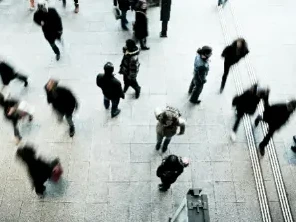Summary
Sociology, as a discipline, delves into the complexities of social interactions, institutions, and the dynamics that mold societies. From the microcosm of individual interactions to the macrocosm of global systems, these sociological concepts will unravel the threads that weave together the fabric of human society.
Entries
Topic Review
- 1.1K
- 04 Mar 2025
Topic Review
- 2.2K
- 08 Feb 2024
Topic Review
- 5.4K
- 08 Feb 2024
Topic Review
- 6.5K
- 08 Feb 2024
Topic Review
- 7.9K
- 08 Feb 2024
Topic Review
- 9.0K
- 08 Feb 2024
Topic Review
- 3.4K
- 08 Feb 2024
Topic Review
- 1.2K
- 08 Feb 2024
Topic Review
- 1.9K
- 08 Feb 2024
Topic Review
- 4.3K
- 08 Feb 2024

